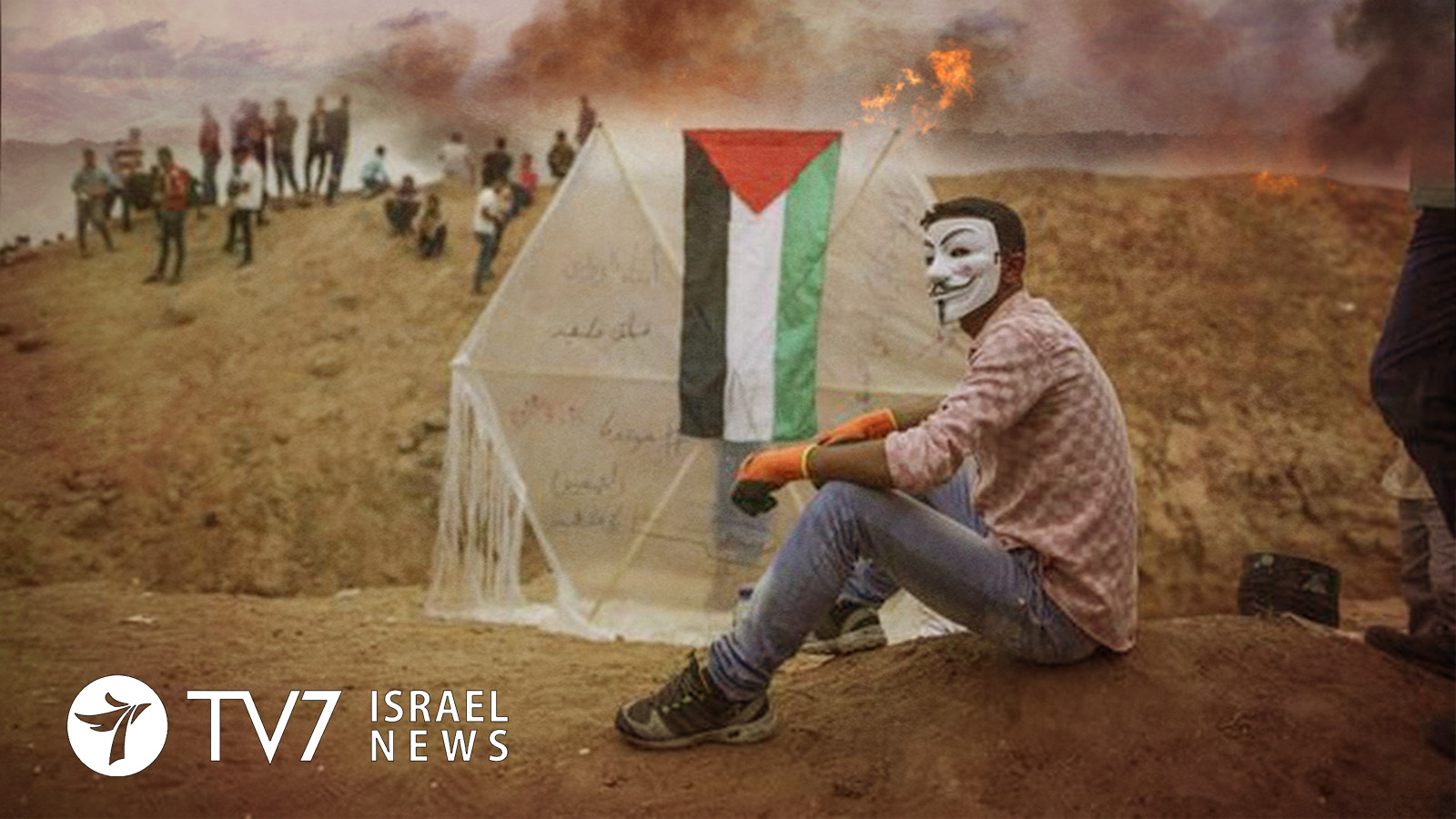Palestinian use of incendiary kites and balloons continues to plague Israel’s southern frontier, with more than 20 fires causing extensive damage over the weekend to both agricultural fields and forests. In response to the ongoing efforts by Palestinian Islamists to ignite blazes on Israel’s side of the border region with the Gaza Strip, the Israeli Air Force attacked thirteen targets belonging to the Islamist Hamas and Islamic Jihad organizations in the norther part of the Palestinian enclave. Four of the airstrikes were directed at vehicles used to transfer kites to the border-region with Israel, while another nine airstrikes targeted installations belonging to the Islamist groups, including militant outposts, weapons-production-warehouses and a training installation. The IDF spokespersons unit stressed in a statement that the Israeli airstrikes were directed at those “responsible for the arsons and destruction of lands in Israel,” while emphasizing the IDF’s determination “to continue to act with increasing force against these terror activities for as long as it takes and with a variety of tools.” The military statement further underscored that “The Hamas terror organization is responsible for everything that happens in and from the Gaza Strip, and it will suffer the consequences.” In response to the Israeli retaliation, Palestinian Islamists fired three rockets this morning towards Israel’s southern communities. One of the rockets exploded within the enclave’s territory, while the other two exploded in open areas. No injuries or damage were reported.
Meanwhile, Israel’s policy of response to the use of incendiary kites and balloons was discussed by the country’s security cabinet, in what sources told TV7 was “a heated discussion.” While the IDF believes that directly hitting the cells responsible for flying the kites and balloons will cause a major escalation in the Gaza Strip, an escalation that at this stage Israel is keen to avoid. Prime Minister Benjamin Netanyahu and Defense Minister Avigdor Lieberman share this view, while other members of the security cabinet, including Education Minister Naftali Bennet and Internal Security Minister Gilad Erdan have publicly demanded that the cells flying the kites must be attacked in the same way as if they were firing rockets toward Israel. Nevertheless, the IDF’s position is that if military steps ultimately need to be taken in Gaza, the timing should be of Israel’s choosing, and that Israel should not be dragged into an escalation dictated by the Islamist organizations in the Palestinian enclave.
